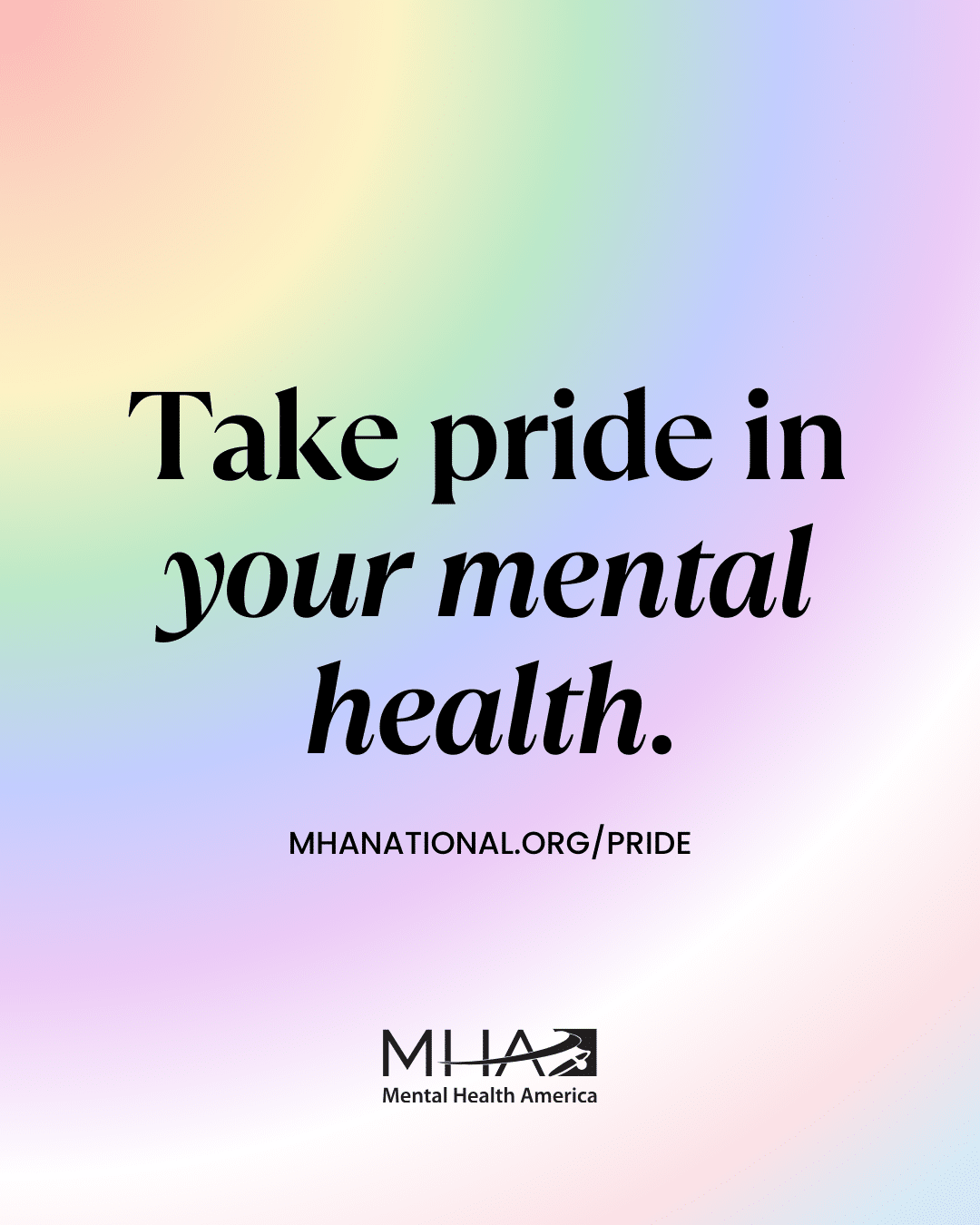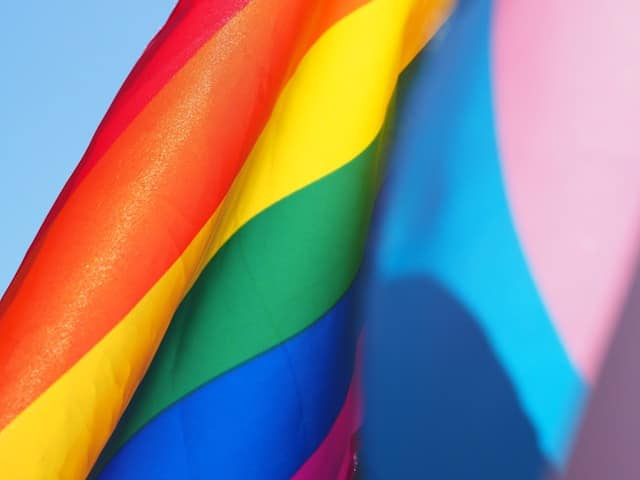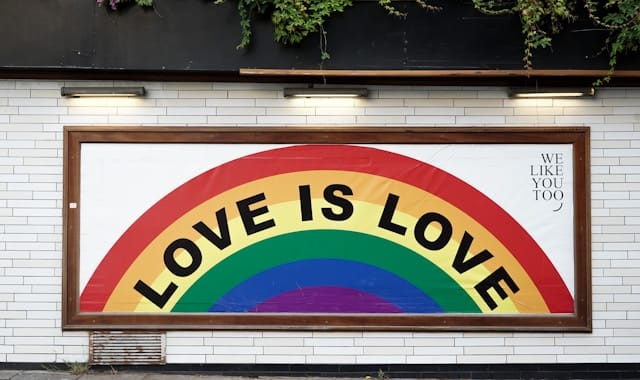

This month we are sharing information about LGBTQ+ mental health in honor of Pride Month. Much of this information comes from Mental Health America. So far, we shared their infographic of key statistics and an article on the impact of family support on mental health. Today we are going to look at therapy as it relates to this topic.
Understanding the unique mental health challenges faced by LGBTQ+ individuals requires a nuanced approach that considers the intersection of identity and mental well-being. The diverse experiences and identities within the LGBTQ+ community necessitate tailored therapeutic interventions to address their specific needs effectively.
The Complex Interplay of Identity and Mental Health
Identity plays a crucial role in shaping an individual’s mental health. For LGBTQ+ individuals, the process of understanding and accepting their sexual orientation or gender identity can be fraught with challenges, including internalized stigma, discrimination, and societal rejection. These factors can contribute to a higher prevalence of mental health issues within the LGBTQ+ community, such as depression, anxiety, and substance abuse. Of course, these experiences and their impacts are not universal, as each individual’s journey and mental health needs are unique. It is important to note that we do not want to pathologize LGBTQ+ identities; rather, we aim to recognize and address the additional stressors they may face.
Internalized Stigma
Growing up in a heteronormative society, many LGBTQ+ individuals internalize negative stereotypes and prejudices about their identity. This internalized stigma can lead to self-doubt, shame, and lower self-esteem, which are significant risk factors for mental health issues.
Discrimination and Prejudice
Experiences of discrimination and prejudice, whether overt or subtle, can have a profound impact on mental health. LGBTQ+ individuals often face bullying, harassment, and violence, which can lead to chronic stress and trauma.
Dating and Relationships
Navigating romantic relationships can also be a significant stressor, especially when partners are at different stages of self-acceptance. This disparity can create tension and misunderstandings, adding to the emotional burden. The fear of rejection, both from partners and from society, can make dating particularly challenging for LGBTQ+ individuals, impacting their mental health and sense of security.
Legal and Financial Barriers
LGBTQ+ individuals often face legal and financial challenges that can add to their stress. Discriminatory laws and policies, such as those affecting marriage, adoption, and employment, can limit their opportunities and create significant hurdles. Financial instability can further exacerbate mental health issues, creating a cycle of stress and anxiety.
Access to Healthcare
Access to LGBTQ+-affirming healthcare can be limited, leading to inadequate medical and mental health care. Many LGBTQ+ individuals encounter healthcare providers who are not knowledgeable about their specific needs or who may even exhibit discriminatory behavior. This can result in delayed or avoided medical treatment, worsening health outcomes.
Religious and Cultural Pressures
Religious and cultural pressures can also pose significant challenges. LGBTQ+ individuals from conservative or traditional backgrounds may experience intense pressure to conform to societal norms, leading to internal conflicts and mental health struggles. The fear of being ostracized by their cultural or religious communities can further isolate them.
Unique Challenges in LGBTQ+ Therapy
Given these complex factors, therapy for LGBTQ+ individuals must be uniquely tailored to address their specific experiences and needs. Here are some key challenges and considerations for effective LGBTQ+ therapy:
- Affirming Identity: Therapy should create a safe and affirming space where LGBTQ+ individuals can explore and express their identities without fear of judgment. Affirming an individual’s identity is a crucial step in building trust and fostering a therapeutic alliance.
- Cultural Competence: Therapists must be culturally competent and knowledgeable about LGBTQ+ issues. This includes understanding the unique experiences of different subgroups within the community, such as transgender, non-binary, and bisexual individuals, and recognizing the diversity of experiences within the LGBTQ+ population.
- Addressing Internalized Stigma: Helping clients to recognize and challenge internalized stigma is essential. This can involve cognitive-behavioral techniques to reframe negative thoughts and build self-acceptance and self-esteem.
- Trauma-Informed Care: Many LGBTQ+ individuals have experienced trauma related to their identity. Trauma-informed care involves understanding the impact of trauma on mental health and providing a safe, supportive environment for healing.
- Support Systems: Encouraging the development of supportive relationships is vital. This might involve helping clients to connect with LGBTQ+ support groups, chosen families, or community resources that can provide acceptance and understanding.
- Intersectionality: Recognizing the intersectionality of various aspects of identity, such as race, ethnicity, religion, and socioeconomic status, is crucial. These intersecting identities can compound the challenges faced by LGBTQ+ individuals and must be considered in therapy.
Practical Strategies from Therapists in Our Network
The therapists in our network aim to effectively support LGBTQ+ clients by adopting several practical strategies:
- Continual Education: Our therapists stay informed about LGBTQ+ issues, terminology, and current events. They regularly participate in professional development opportunities related to LGBTQ+ mental health to ensure they are providing the most current and informed care.
- Creating an Inclusive Environment: Our network ensures that practices are visibly inclusive. This includes displaying LGBTQ+ affirming materials, using inclusive language on intake forms, and clearly communicating their commitment to supporting LGBTQ+ clients.
- Listening and Validating: Therapists actively listen to clients’ experiences and validate their feelings. They affirm clients’ identities and experiences, and avoid making assumptions about their needs or experiences, creating a safe and supportive therapeutic space.
- Advocating for Clients: Our therapists advocate for LGBTQ+ clients within larger systems, such as schools, workplaces, and healthcare settings. This advocacy may involve providing resources, writing letters of support, or collaborating with other professionals to ensure comprehensive care.
- Fostering Resilience: Therapists help clients build resilience by identifying their strengths, fostering a positive self-image, and encouraging self-care practices that promote mental well-being. They work with clients to develop coping strategies and support systems that enhance their ability to navigate challenges.
Many of our therapists are members of the LGBTQ+ community and/or work regularly with this community. Search our therapist directory today to find the therapist who is right for you.



